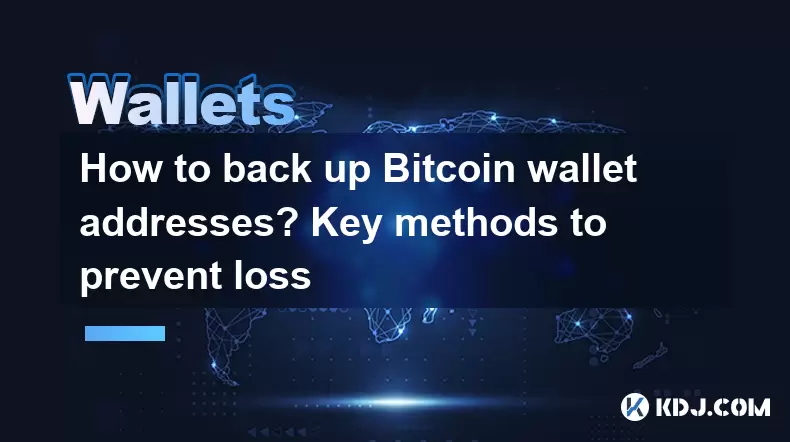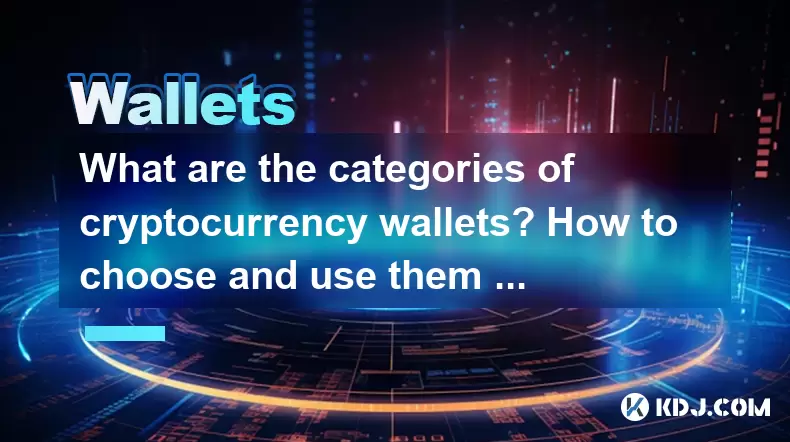-
 Bitcoin
Bitcoin $107,352.1067
0.28% -
 Ethereum
Ethereum $2,429.3531
-0.90% -
 Tether USDt
Tether USDt $1.0001
-0.02% -
 XRP
XRP $2.1894
4.62% -
 BNB
BNB $646.7968
0.36% -
 Solana
Solana $147.4290
4.03% -
 USDC
USDC $0.9998
-0.02% -
 TRON
TRON $0.2756
1.52% -
 Dogecoin
Dogecoin $0.1630
1.14% -
 Cardano
Cardano $0.5612
1.18% -
 Hyperliquid
Hyperliquid $37.0580
-0.05% -
 Bitcoin Cash
Bitcoin Cash $496.9410
-0.09% -
 Sui
Sui $2.7318
3.19% -
 Chainlink
Chainlink $13.1503
0.58% -
 UNUS SED LEO
UNUS SED LEO $9.0766
0.55% -
 Avalanche
Avalanche $17.7220
1.46% -
 Stellar
Stellar $0.2380
1.52% -
 Toncoin
Toncoin $2.8439
0.38% -
 Shiba Inu
Shiba Inu $0.0...01143
1.84% -
 Litecoin
Litecoin $85.8053
1.47% -
 Hedera
Hedera $0.1483
2.70% -
 Monero
Monero $314.3240
2.12% -
 Bitget Token
Bitget Token $4.6725
0.77% -
 Dai
Dai $1.0000
0.00% -
 Polkadot
Polkadot $3.3555
1.28% -
 Ethena USDe
Ethena USDe $1.0001
0.02% -
 Uniswap
Uniswap $7.0890
2.64% -
 Pi
Pi $0.5355
-3.40% -
 Pepe
Pepe $0.0...09393
1.06% -
 Aave
Aave $256.8136
-1.90%
How to back up Bitcoin wallet addresses? Key methods to prevent loss
Back up your Bitcoin wallet addresses using recovery seeds or private keys, and store them securely in multiple locations to prevent permanent loss of funds.
May 12, 2025 at 09:35 pm

Backing up your Bitcoin wallet addresses is crucial for safeguarding your digital assets. Losing access to your wallet can result in permanent loss of your funds. This article will guide you through the key methods to back up your Bitcoin wallet addresses and prevent loss, ensuring your cryptocurrencies remain secure.
Understanding Bitcoin Wallet Addresses
Before diving into the backup process, it's essential to understand what a Bitcoin wallet address is. A Bitcoin wallet address is a unique identifier used to send and receive Bitcoin. It is derived from your wallet's public key and can be shared with others to receive funds. Each wallet can generate multiple addresses, and each address can only be used once for receiving funds to maintain privacy and security.
Types of Bitcoin Wallets
Bitcoin wallets come in various forms, and the backup process can differ based on the type of wallet you use. There are primarily three types of Bitcoin wallets:
- Software Wallets: These are applications installed on your computer or mobile device. Examples include Electrum and Bitcoin Core.
- Hardware Wallets: These are physical devices designed to store your private keys securely offline. Popular options include Ledger and Trezor.
- Paper Wallets: These are physical documents that contain your public and private keys printed on them.
Backing Up Software Wallets
Software wallets typically require you to back up a recovery seed or private key. Here's how to back up a software wallet using Electrum as an example:
- Open Electrum and navigate to the "Wallet" menu.
- Select "Seed" and enter your password if prompted.
- Write down the 12 or 24-word recovery seed on a piece of paper. Ensure you store this paper in a secure location.
- Alternatively, you can export the private keys. Go to "Wallet," then "Private Keys," and click "Export." Save the file in a secure location.
Backing Up Hardware Wallets
Hardware wallets use recovery seeds for backup purposes. Here's how to back up a hardware wallet using a Ledger device as an example:
- Connect your Ledger device to your computer and enter your PIN.
- Open the Ledger Live application on your computer.
- Navigate to the "Manager" tab and select your wallet.
- Click on "Backup" and follow the prompts. You will be shown a 24-word recovery seed.
- Write down the recovery seed on a piece of paper and store it in a secure, offline location.
Backing Up Paper Wallets
Backing up a paper wallet involves creating multiple copies of the document containing your public and private keys. Here's how to do it safely:
- Print multiple copies of your paper wallet. Ensure each copy is legible and complete.
- Store each copy in a different secure location, such as a safe deposit box or a secure home safe.
- Consider laminating the copies to protect them from damage.
Using Encryption for Digital Backups
For digital backups, encryption can add an extra layer of security. Here's how to encrypt your backup files:
- Use encryption software like VeraCrypt or BitLocker.
- Create a new encrypted volume and set a strong password.
- Copy your backup files (such as private keys or recovery seeds) into the encrypted volume.
- Store the encrypted volume on a secure device or cloud storage service.
Best Practices for Storing Backups
Storing your backups securely is just as important as creating them. Here are some best practices:
- Use multiple storage locations. Keep physical backups in different secure locations, such as a safe deposit box and a home safe.
- Avoid storing backups in digital formats on devices connected to the internet unless they are encrypted.
- Regularly check the integrity of your backups. Ensure that the recovery seed or private keys are still readable and accessible.
- Limit access to your backups. Only you should know where your backups are stored and how to access them.
Recovering Your Bitcoin Wallet
If you ever need to recover your Bitcoin wallet, follow these steps:
- For software wallets: Use the recovery seed or private keys to restore your wallet in the same or a different software wallet application.
- For hardware wallets: Use the recovery seed to restore your wallet on a new or reset hardware device.
- For paper wallets: Use the private key to sweep the funds into a new wallet address.
Common Mistakes to Avoid
When backing up your Bitcoin wallet addresses, be cautious of the following common mistakes:
- Storing backups in easily accessible locations. Avoid keeping backups in places where they can be easily found or stolen.
- Sharing your recovery seed or private keys. Never share these with anyone, as they can be used to access your funds.
- Not creating multiple backups. Relying on a single backup increases the risk of losing access to your funds if the backup is lost or damaged.
- Using weak passwords for encrypted backups. Strong, unique passwords are essential for maintaining the security of your encrypted backups.
Frequently Asked Questions
Q: Can I back up my Bitcoin wallet using a cloud storage service?
A: Yes, you can use cloud storage services to back up your Bitcoin wallet, but it's crucial to encrypt the backup files before uploading them to the cloud. This adds an extra layer of security to prevent unauthorized access to your recovery seed or private keys.
Q: How often should I check my Bitcoin wallet backups?
A: It's recommended to check your Bitcoin wallet backups at least once every six months. This ensures that your backups are still readable and accessible, and it helps you confirm that your storage methods are still secure.
Q: What should I do if I lose my Bitcoin wallet backup?
A: If you lose your Bitcoin wallet backup, your funds may be irretrievable. To mitigate this risk, always create multiple backups and store them in different secure locations. If you find yourself in this situation, consider seeking professional help from a reputable cryptocurrency recovery service.
Q: Is it safe to store my Bitcoin wallet backup on a USB drive?
A: Storing your Bitcoin wallet backup on a USB drive can be safe if the drive is encrypted and stored in a secure location. However, be aware that USB drives can fail or be lost, so it's advisable to have multiple backups in different formats and locations.
Disclaimer:info@kdj.com
The information provided is not trading advice. kdj.com does not assume any responsibility for any investments made based on the information provided in this article. Cryptocurrencies are highly volatile and it is highly recommended that you invest with caution after thorough research!
If you believe that the content used on this website infringes your copyright, please contact us immediately (info@kdj.com) and we will delete it promptly.
- Pi2Day Disappointment: Why the Pi Network Community Is Losing Faith
- 2025-06-28 18:30:12
- Silver Lining: Robert Kiyosaki's July 2025 Silver Prediction
- 2025-06-28 18:30:12
- Gotta Go Fast! Sonic Speeds into Magic: The Gathering Secret Lair
- 2025-06-28 18:50:12
- Shiba Inu, Price Prediction, Dogecoin Pepe: Meme Coin Mania in 2025
- 2025-06-28 18:50:12
- Genius Group, Bitcoin, and Lawsuit Wins: A New Era for EdTech?
- 2025-06-28 18:42:02
- LILPEPE: The Meme Coin on a Layer 2 Mission to the Moon
- 2025-06-28 18:57:01
Related knowledge

How to stake cryptocurrencies on Coinbase? Benefits and risks
Jun 27,2025 at 06:36pm
Understanding Cryptocurrency Staking on CoinbaseStaking cryptocurrencies involves locking up digital assets to support the operations of a blockchain network, typically in return for rewards. Coinbase, one of the most popular cryptocurrency exchanges globally, offers staking services for several proof-of-stake (PoS) coins. Users can stake their holdings...

How to contact Coinbase customer service? Support channels and response times
Jun 28,2025 at 01:29pm
Contacting Coinbase Customer Service: Support Channels and Response TimesIf you're a user of Coinbase, reaching their customer service team may become necessary for various reasons, such as account verification issues, transaction disputes, or technical difficulties. Understanding the different support channels available and what to expect in terms of r...

Which cryptocurrencies does Coinbase support? Full currency list
Jun 28,2025 at 08:36am
Overview of Cryptocurrencies Supported by CoinbaseCoinbase is one of the most popular and trusted cryptocurrency exchanges globally. It provides users with a platform to buy, sell, trade, and store various digital assets. As of the latest updates, Coinbase supports over 200 cryptocurrencies, including major ones like Bitcoin (BTC), Ethereum (ETH), and L...

Coinbase withdrawal tutorial: How to transfer funds to a bank account
Jun 28,2025 at 02:35am
Understanding Coinbase WithdrawalsCoinbase is one of the most widely used cryptocurrency platforms, allowing users to buy, sell, and store digital assets. Once you've successfully traded or held your crypto on Coinbase, the next logical step may be to withdraw funds to a bank account. This process involves converting your cryptocurrency into fiat curren...

What are the categories of cryptocurrency wallets? How to choose and use them safely?
Jun 21,2025 at 10:42pm
Understanding Cryptocurrency WalletsCryptocurrency wallets are essential tools for anyone involved in the digital asset ecosystem. They allow users to store, send, and receive cryptocurrencies securely. Unlike traditional wallets that hold physical money, crypto wallets manage cryptographic keys—private and public—which interact with blockchain networks...

Which one is more suitable for high-frequency trading users, browser plug-in wallets or independent application wallets?
Jun 23,2025 at 08:22am
Understanding the Role of Wallets in High-Frequency TradingFor high-frequency trading (HFT) users in the cryptocurrency market, wallet selection is critical due to the need for speed, security, and seamless integration with trading platforms. HFT involves executing a large number of trades within seconds or even milliseconds, which demands a wallet that...

How to stake cryptocurrencies on Coinbase? Benefits and risks
Jun 27,2025 at 06:36pm
Understanding Cryptocurrency Staking on CoinbaseStaking cryptocurrencies involves locking up digital assets to support the operations of a blockchain network, typically in return for rewards. Coinbase, one of the most popular cryptocurrency exchanges globally, offers staking services for several proof-of-stake (PoS) coins. Users can stake their holdings...

How to contact Coinbase customer service? Support channels and response times
Jun 28,2025 at 01:29pm
Contacting Coinbase Customer Service: Support Channels and Response TimesIf you're a user of Coinbase, reaching their customer service team may become necessary for various reasons, such as account verification issues, transaction disputes, or technical difficulties. Understanding the different support channels available and what to expect in terms of r...

Which cryptocurrencies does Coinbase support? Full currency list
Jun 28,2025 at 08:36am
Overview of Cryptocurrencies Supported by CoinbaseCoinbase is one of the most popular and trusted cryptocurrency exchanges globally. It provides users with a platform to buy, sell, trade, and store various digital assets. As of the latest updates, Coinbase supports over 200 cryptocurrencies, including major ones like Bitcoin (BTC), Ethereum (ETH), and L...

Coinbase withdrawal tutorial: How to transfer funds to a bank account
Jun 28,2025 at 02:35am
Understanding Coinbase WithdrawalsCoinbase is one of the most widely used cryptocurrency platforms, allowing users to buy, sell, and store digital assets. Once you've successfully traded or held your crypto on Coinbase, the next logical step may be to withdraw funds to a bank account. This process involves converting your cryptocurrency into fiat curren...

What are the categories of cryptocurrency wallets? How to choose and use them safely?
Jun 21,2025 at 10:42pm
Understanding Cryptocurrency WalletsCryptocurrency wallets are essential tools for anyone involved in the digital asset ecosystem. They allow users to store, send, and receive cryptocurrencies securely. Unlike traditional wallets that hold physical money, crypto wallets manage cryptographic keys—private and public—which interact with blockchain networks...

Which one is more suitable for high-frequency trading users, browser plug-in wallets or independent application wallets?
Jun 23,2025 at 08:22am
Understanding the Role of Wallets in High-Frequency TradingFor high-frequency trading (HFT) users in the cryptocurrency market, wallet selection is critical due to the need for speed, security, and seamless integration with trading platforms. HFT involves executing a large number of trades within seconds or even milliseconds, which demands a wallet that...
See all articles
























































































